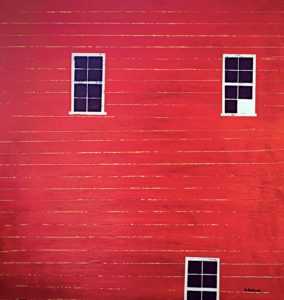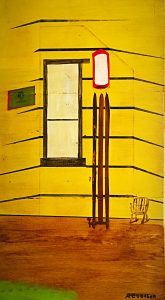May 28, 2018
By Arthur H. Gunther III
There’s an analogy between “English” muffins and the present government of the United States, once known as “of, by and for the people’ and now an oligarchy.
In Englishman Samuel Bath Thomas’ later 1800s’ days and for most of the 20th century, the yeast-derived muffin was large, about the four-inch size of a classic donut before a leading donut chain took to profit/greed-circumcising, down to about three inches. English muffins, simply called muffins in the Queen’s realm, also used to be fork-split, because when you do not slice, you do not smoosh the yeast- or quick-bread, and those crannies capture the melting butter. But I suspect more preservatives have made that more difficult, at least in some brands.
Move on from the English muffins and you can complain about shrinking Oreos and other cookies, smaller candy bars, “one-pound” coffee tins now holding 11 ounces, not 16. Initially, years back now, the weight reduction in your tin was attributed to “vacuum-packed for freshness.”
We Americans bought that snake-oil claim and have simply numbed ourselves to shrinking products everywhere. So, we eat two English muffins or four cookies rather than one and two. We buy the smaller donut at the ubiquitous chain because it is convenient, even if it cost almost twice as much as in the supermarket next door.
Our lives, it seems, are just too busy to think about it, or we simply do not care.
So, what is the analogy between reduced-in-size English muffins, smaller anything and our disappearing republic, the once-democracy?
In the Founders’ eyes, the thought was to build a republic that was a democracy, build it on the rights of man, in equality, away from the abuse of power. While equality and the “rights of man” did not include African-Americans or women or some others, this America, in the deliberate maturing envisioned by the Founders, had, before the corruption of power since at least John F. kennedy, ended slavery, achieved the right to right to vote for women, had recognized unions and enacted laws to protect the people. There was progress in this great American experiment. But in the past decades, both major political parties have willingly reduced the pie, cut the muffin size, by allowing our once-democracy to be dominated by corporate power, other special interest and greed. There is now lynching by Twitter of minorities, immigrants and anyone in disagreement with the powers that be. Neither party sees the economic suffering that is eating, depression-like, at half the country. Neither fights the pharmaceutical and health insurance mega-industries. Neither addresses the voracious appetite of the military in futile, costly wars that send veterans’ minds to PTSD nightmares while enriching the military/industrial complex.
Civil liberties are threatened by the loss of privacy, surveillance and withered due process, with the power structure counting on citizen ignorance of their basic rights.
Hidden money fuels this deepened march toward government of the few. It imprisons rather than deal with an opioid epidemic caused by pharmaceutical greed. It militarizes police, basically selfless individuals enabled into bullying. The military motto has always been “kill or be killed,” the civilian police, “do the least harm in protecting and serving.” That is lost in militarization, and it insults both the citizens and the ordinary police.
The present paucity of U.S. leadership is the direct result of our deliberate withering, our greed-driven downsizing of the grand “muffin” that once was to be offered to all.
We clearly await a revolution, bloodless I pray. Without civil disobedience from decent people, this nation is doomed, the sacrifices of so many buried by lust for power and money.
The writer is a retired newspaperman. ahgunther@yahoo.com


